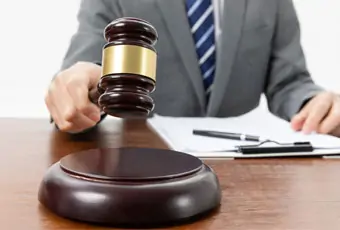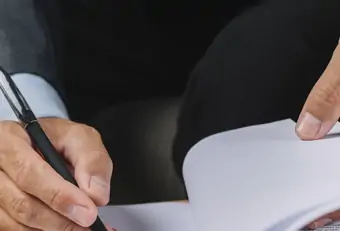How to Prevent the Destruction of Evidence
Immediately after an accident, you must gather and preserve evidence, or key information may be lost forever. When the party at fault is a business, it sometimes will destroy evidence deliberately to obstruct a claim, or unintentionally because of the company’s standard policy or routine. For example, after several hours, some security cameras record over the previous data automatically. On other occasions, a business is not the party at fault, but a potential witness or another source of information. For example, there may be security cameras in a convenience store in front of an intersection where a car accident occurred. When evidence is destroyed intentionally or unintentionally, it is referred to as “spoliation” of the evidence. If the evidence is destroyed, there is little that an attorney can do, unless s/he sends a spoliation letter to put all parties on notice to retain the evidence.
The spoliation letter should be sent immediately after the accident. In North and South Carolina, if a party destroys evidence in its possession, then the court can give the jury a “spoliation charge” that allows it to infer or presume that the evidence destroyed would injure the party that destroyed it; other states have adopted an independent tort cause of action for spoliation of evidence.
Template for a Spoliation Letter
To Whom It May Concern:
This firm has been retained to represent CLIENT regarding the slip and fall accident at your business on DATE. Please direct all future inquiries or correspondence directly to this office.
Please be advised that you are under a legal duty to retain and not destroy any and all documents and data, both electronic and hard copy, that may be relevant to CLIENT’s potential claims, including, but not limited to, photographs, videotapes, or other audio or computer media relating to the occurrence, the scene, or to any equipment or items located originally at or near the site of the accident.The failure to preserve and retain the electronic data and other evidence outlined in this notice may create an adverse inference in our favor under Wisconsin Motor Corp. v. Green, 79 S.E.2d 718, 720-21 (SC 1954)and Panos v. Timco Engine Center, Inc., 677 S.E.2d 868 (N.C. App. 2009).
For purposes of this notice, electronic data or evidence shall include, but not be limited to, all text files (including word processing documents), presentation files (such as PowerPoint), financial data, spreadsheets, e-mail files, and information concerning e-mail files (including logs of e-mail history and use, header information, and deleted files), internet history files and preferences, graphical files in any format, databases, calendar, and scheduling information, task lists, voicemails, instant messaging, and other electronic communications, telephone logs, contact managers, computer system activity logs, and all file fragments, internet use files,offline storage, or information stored on removable or storage media, information contained on laptops, or other portable devices, network access information, and backup files containing electronic data or evidence. Specifically, you are instructed not to destroy, disable, erase, encrypt, alter, or otherwise make unavailable any electronic data and evidence relevant to our client’s potential claims, and you are instructed further to take reasonable efforts to preserve such data and evidence.
To meet this burden, you are instructed by way of example and not limitation, to preserve any photographs, videotapes, or audio evidence; preserve all data storage backup files (i.e., not overwrite any previously existing backups); preserve and retain all electronic data generated or received by employees who may have personal knowledge of the facts involved regarding the accident as set forth above; refrain from operating, removing, or altering, fixed or external drives and media attached to any workstations or laptops, voicemail systems, and cell phones, copy machines that are reasonably thought to have data related to the claims, including, but not limited to, the workstations and/or laptops used by Walmart; preserve and retain all data from servers and networking equipment that log network access activity and system authentication; preserve and retain all electronic data in any format, media, or location relating to the claims, including data on hard drives, hard disks, floppy disks, zip drives, CD-ROMs, CD-RWs, DVDs, backup tapes, PDAs, cell phones, smartphones, memory cards/sticks, or digital copiers or facsimile machines; prevent employees from deleting or overwriting any electronic data related to the accident, and take such other security measures, including, but not limited to, restricting physical and electronic access to all data stored electronically that are related, directly or indirectly, to the accident.
If you are injured, and there is a possibility that evidence may be destroyed, intentionally or unintentionally, then you should contact an attorney immediately. Once retained, the attorney can take all the steps necessary to ensure that the essential evidence is preserved.






